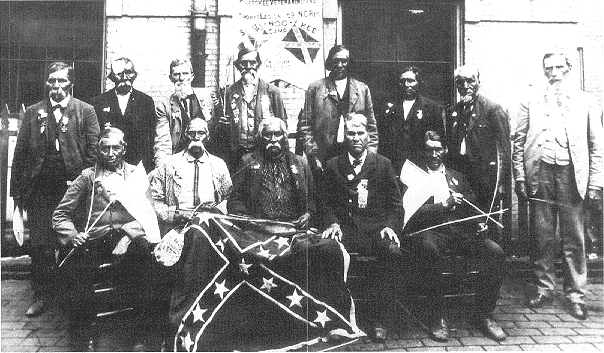
Born
17 June 1844 at his parent’s plantation in Wayne County, near Beston,
North Carolina, Thomas W. Uzzell was educated in local schools and took
the occupation of farmer.
He enlisted on 11 August 1863, probably at Snow Hill in Greene County, in a company formed by Major John H. Nethercutt of the 8th Battalion, North Carolina Partisan Rangers.
Most
of the men of this company were drawn from Onslow, Duplin, Greene,
Sampson, Lenoir and Wayne counties and mustered into Company F of the 8th Battalion on 5
September 1863, Thomas W. Uzzell with the rank of sergeant. He joined
family members in this unit with cousin Jesse Parker Williams holding
captain’s rank and Uncle Mathew Uzzell a corporal.
Initially
stationed at Kinston, Uzzell’s unit picketed the roads between there
and occupied New Bern to prevent enemy cavalry from raiding further into
North Carolina and disrupting the Wilmington and Weldon railroad. On 2 October 1863, The 8th Partisan Rangers was transferred into the newly formed 66th North Carolina Regiment and Sgt. Uzzell assigned to Company I of that unit, comprising part of Gen. William W. Kirkland’s Brigade.
On 12 October the regiment moved from Kinston to Camp Ashe on Topsail Sound to guard the New Bern Road above Wilmington; by 21 November it had relocated to Camp Burgwyn nearer to the city (today, the intersection of Princess Place Drive and 23rd Street).
Under
General James G. Martin in late January 1864, Uzzell’s regiment marched
up the New Bern Road to threaten Morehead City and act as a diversion
for a main assault
on New Bern. The 66th encountered enemy pickets at Bogue Sound, then
fought a sharp two-hour engagement near Newport Barracks. After routing
the enemy,
firing stables, storehouses and a railroad bridge, and learning that
the attack on New Bern had failed, the regiment returned to Wilmington.
Sent
to Virginia in May 1864 to oppose an enemy offensive against Richmond,
and battle at Bermuda Hundred and Cold Harbor, Sergeant Uzzell was
hospitalized in Petersburg
mid-June 1864 for an unspecified complaint, sent to a hospital in
Richmond in late June, and furloughed for sixty days on August 2, 1864.
His furlough was
extended for thirty days on October 2, 1864, and returned to duty in
time to be sent to Fort Fisher in late December, 1864. There the 66th Regiment fought enemy
forces at the Sugarloaf and Forks Road engagements, withdrew through
Wilmington to Duplin Roads, then hard fighting again at Wise’s Forks,
Southwest Creek and Bentonville.
While
home on health furlough Thomas Uzzell married Elizabeth “Bettie” Ann
Parks (1848-1902) on 21 August 1864 at the Lenoir county home of
grandmother Annie
Sutton. Bettie was the daughter of Major Parks and Martha Sutton Parks;
the union of Thomas W. and Bettie Ann produced six children between
1866 and 1880: Major, Essie, Thomas, Polly, Atlas and Martha.
Sgt.
Uzzell was surrendered with Gen. Joseph E. Johnston’s forces at Durham
Station on 26 April 1865. Older brother Dunn was killed at Manassas and
Uncle Mathew died
of wounds in May of 1864; Sgt. Uzzell and father “Big Tom” (1814-1875)
drove a wagon to Virginia shortly after the war to retrieve their bodies
for burial at the family plantation.
He
and Bettie returned to farming on his father’s property near White Hall
(later Seven Springs), on the Neuse River. He supplemented their farm
produce with fish and plentiful wild game, and by 1879 had built a commodious home to house their growing family.
Though
the war interrupted Thomas Wood Uzzell’s plan to become a lawyer, he
later studied law by mail and became a magistrate in Seven Springs who
handled warrants, wills, marriages and minor hearings or trials.
Living
fourteen years after losing wife Bettie Ann in 1902, Sergeant Thomas W.
Uzzell crossed the river to rest under the shade of the trees on 28
July 1916, age 71 years.

Another great post. Thanks for researching and putting these up, Brock.
ReplyDeleteThank you for commenting and I see the photo is bad. Thanks and I'll add another.
Delete